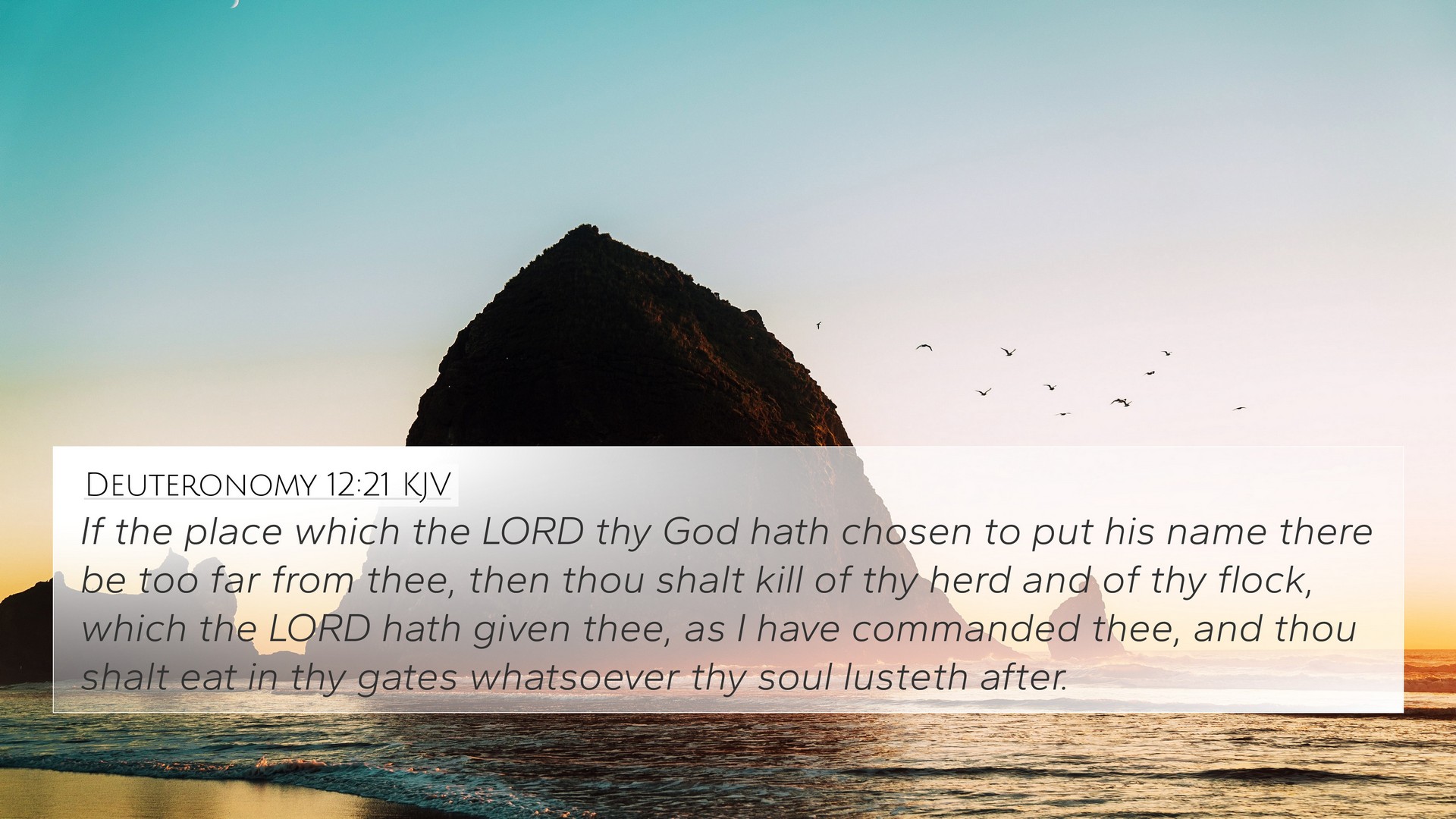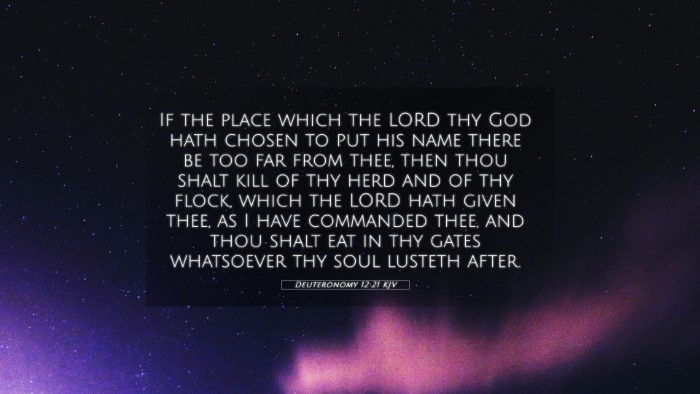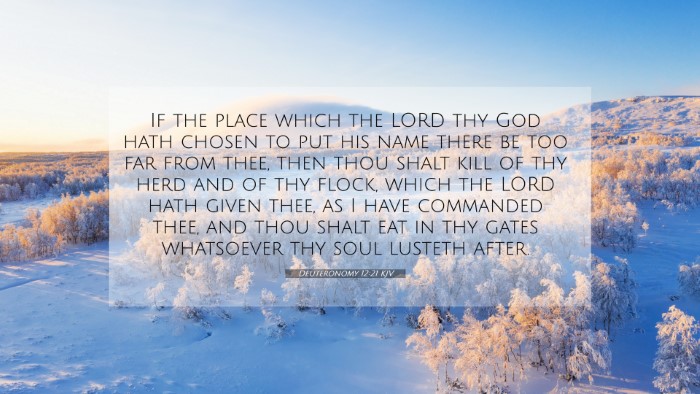This section features a detailed cross-reference designed to enrich your understanding of the Scriptures.
Below, you will find carefully selected verses that echo the themes and teachings related to Deuteronomy 12:21 KJV. Click on any image to explore detailed analyses of related Bible verses and uncover deeper theological insights.
 Deuteronomy 12:5 (KJV) »
Deuteronomy 12:5 (KJV) »
But unto the place which the LORD your God shall choose out of all your tribes to put his name there, even unto his habitation shall ye seek, and thither thou shalt come:
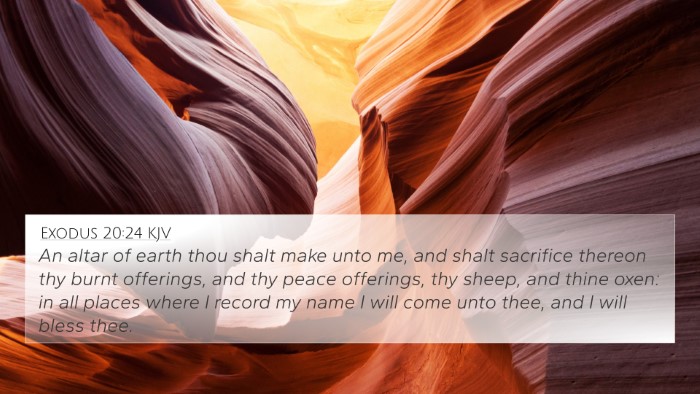 Exodus 20:24 (KJV) »
Exodus 20:24 (KJV) »
An altar of earth thou shalt make unto me, and shalt sacrifice thereon thy burnt offerings, and thy peace offerings, thy sheep, and thine oxen: in all places where I record my name I will come unto thee, and I will bless thee.
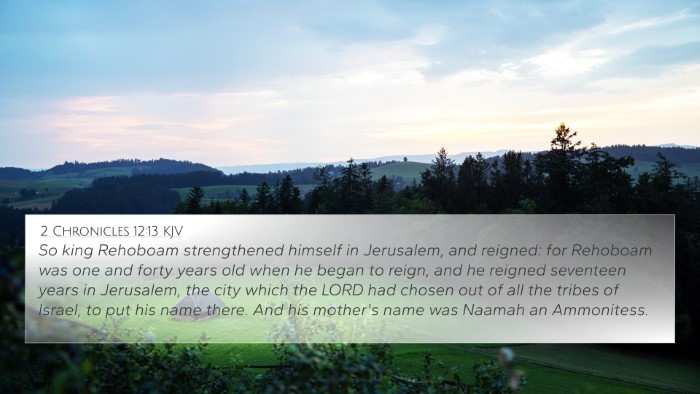 2 Chronicles 12:13 (KJV) »
2 Chronicles 12:13 (KJV) »
So king Rehoboam strengthened himself in Jerusalem, and reigned: for Rehoboam was one and forty years old when he began to reign, and he reigned seventeen years in Jerusalem, the city which the LORD had chosen out of all the tribes of Israel, to put his name there. And his mother's name was Naamah an Ammonitess.
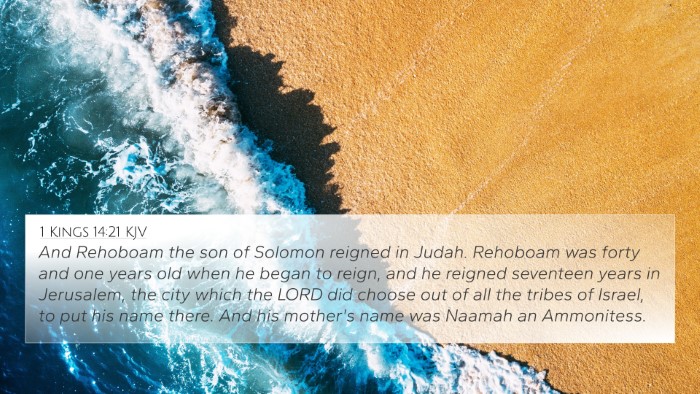 1 Kings 14:21 (KJV) »
1 Kings 14:21 (KJV) »
And Rehoboam the son of Solomon reigned in Judah. Rehoboam was forty and one years old when he began to reign, and he reigned seventeen years in Jerusalem, the city which the LORD did choose out of all the tribes of Israel, to put his name there. And his mother's name was Naamah an Ammonitess.
 Deuteronomy 12:11 (KJV) »
Deuteronomy 12:11 (KJV) »
Then there shall be a place which the LORD your God shall choose to cause his name to dwell there; thither shall ye bring all that I command you; your burnt offerings, and your sacrifices, your tithes, and the heave offering of your hand, and all your choice vows which ye vow unto the LORD:
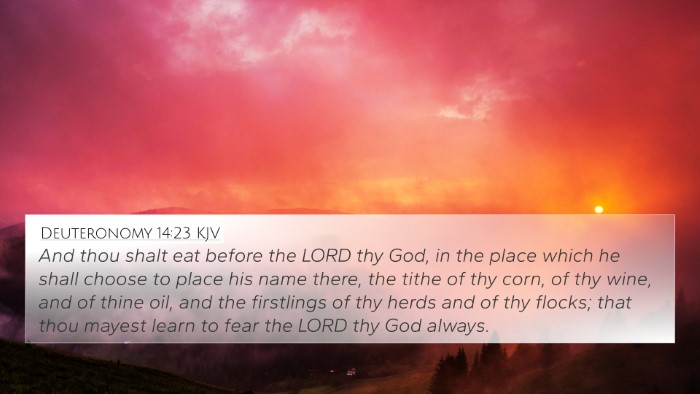 Deuteronomy 14:23 (KJV) »
Deuteronomy 14:23 (KJV) »
And thou shalt eat before the LORD thy God, in the place which he shall choose to place his name there, the tithe of thy corn, of thy wine, and of thine oil, and the firstlings of thy herds and of thy flocks; that thou mayest learn to fear the LORD thy God always.
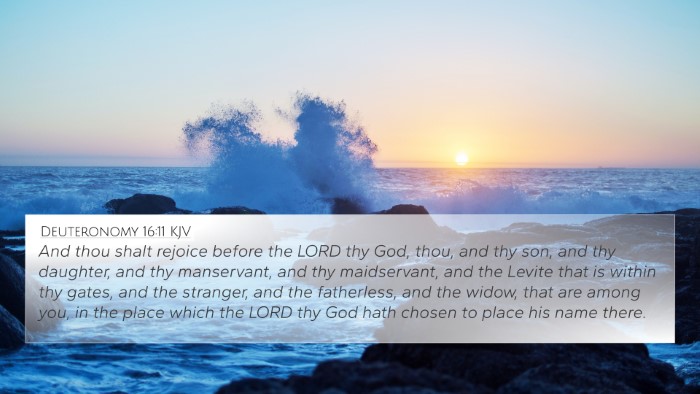 Deuteronomy 16:11 (KJV) »
Deuteronomy 16:11 (KJV) »
And thou shalt rejoice before the LORD thy God, thou, and thy son, and thy daughter, and thy manservant, and thy maidservant, and the Levite that is within thy gates, and the stranger, and the fatherless, and the widow, that are among you, in the place which the LORD thy God hath chosen to place his name there.
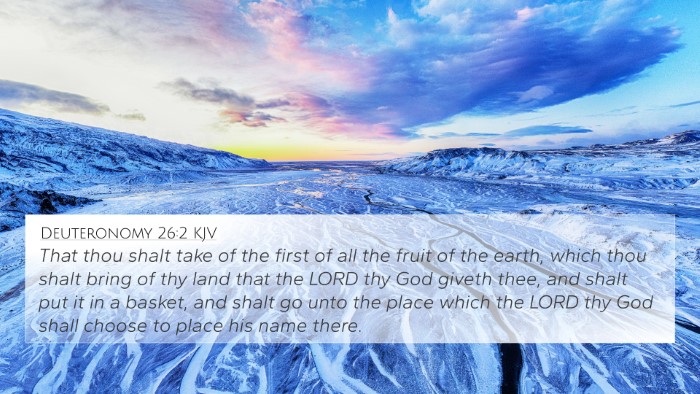 Deuteronomy 26:2 (KJV) »
Deuteronomy 26:2 (KJV) »
That thou shalt take of the first of all the fruit of the earth, which thou shalt bring of thy land that the LORD thy God giveth thee, and shalt put it in a basket, and shalt go unto the place which the LORD thy God shall choose to place his name there.
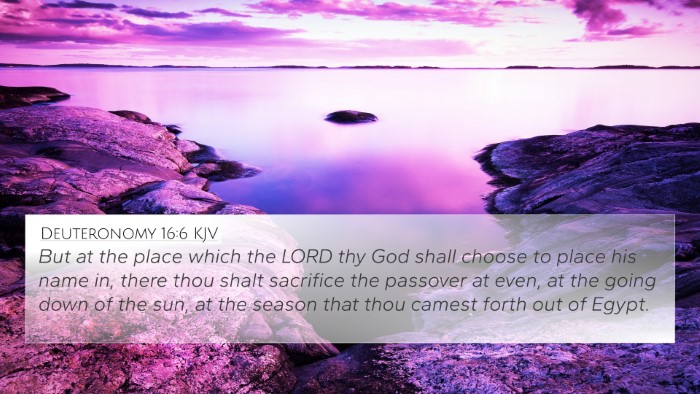 Deuteronomy 16:6 (KJV) »
Deuteronomy 16:6 (KJV) »
But at the place which the LORD thy God shall choose to place his name in, there thou shalt sacrifice the passover at even, at the going down of the sun, at the season that thou camest forth out of Egypt.
 Deuteronomy 12:15 (KJV) »
Deuteronomy 12:15 (KJV) »
Notwithstanding thou mayest kill and eat flesh in all thy gates, whatsoever thy soul lusteth after, according to the blessing of the LORD thy God which he hath given thee: the unclean and the clean may eat thereof, as of the roebuck, and as of the hart.
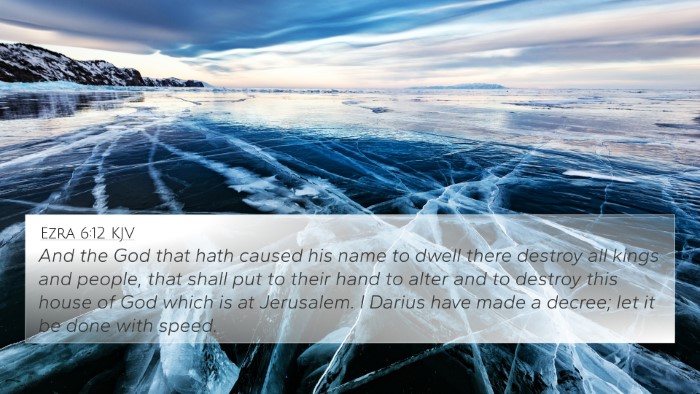 Ezra 6:12 (KJV) »
Ezra 6:12 (KJV) »
And the God that hath caused his name to dwell there destroy all kings and people, that shall put to their hand to alter and to destroy this house of God which is at Jerusalem. I Darius have made a decree; let it be done with speed.
